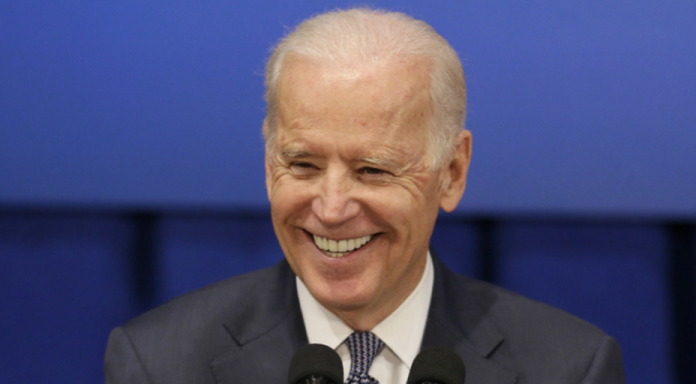
WASHINGTON – Vice President Joe Biden will convene a day-long cancer summit in Washington on Wednesday that will be part pep rally, part Ted talk, part wonk-a-thon – all designed to garner support for the Obama administration’s yearlong initiative to advance cancer research.
The summit, which is expected to draw as many as 300 people from academia, industry and advocacy groups to Howard University, is billed as a way to generate new ideas to beat a disease that kills almost 600,000 Americans a year. Dozens of regional summits will take place at the same time.
These meetings come at a critical time. With 2016 already half over, Biden is running out of time on his “cancer moonshot.” Though he has repeatedly said the initiative’s goals are backed by both parties, funding is bogged down amid partisan disputes in Congress, even as federal officials scramble to develop recommendations on how to accelerate research gains. Their proposals won’t be ready until later this summer or the fall.
The Howard University session is designed to have broad popular appeal. It will be emceed by actress Carol Burnett, who lost her 38-year-old daughter to cancer in 2002. Jill Biden also will appear; barely a year ago, she and her husband buried their son Beau after he died from brain cancer.
Organizers are asking invitees to pledge their online support for the administration initiative using the hashtag #CanServe. “We often talk about cancer as something that happens to us,” noted an email targeted at invitees. “It’s time for us to happen to cancer.”
In a bid to show concrete progress, the vice president and other officials will make several announcements at the summit. Some of the ideas have been around much longer than the moonshot but have gotten a boost from the White House effort. Possibilities include:
– Revamping how the Food and Drug Adminstration handles cancer-related products.
In February, the FDA said it would create a virtual Oncology Center of Excellence to deal with the “dramatic increase in the number, complexity and effectiveness of cancer diagnostics and therapeutics.” The move aimed to speed the development of novel combination products by making a single site responsible for drugs, devices and biologics reviews rather than keeping those divided among three separate operations.
Since then, a wide array of cancer groups has pressed the FDA to create an actual center. “The goal is to get better treatments to the patient,” said Ellen Sigal, founder and chair of the nonprofit Friends of Cancer Research, which is leading the push. The agency’s regulatory regime needs streamlining given changes in the field of cancer, she said.
No matter what is decided, FDA cancer-drug czar Richard Pazdur is likely to end up with more clout. Pazdur, an oncologist and FDA veteran, is seen as an innovative leader who has helped to speed approvals for cancer therapies.
A pre-summit statement from the agency said details “of the specific framework” of the center were still being developed.
Mark McClellan, a former FDA commissioner who is director of the new Robert J. Margolis Center for Health Policy at Duke University, said consolidating cancer reviews is a good step but doesn’t necessarily address the FDA’s overarching challenge – a lack of money.
“The FDA has a huge amount of ground to cover and very limited resources to do it,” McClellan said.
– Creating a National Cancer Institute clearinghouse for drugs needed for combination studies.
Researchers can wait several months or longer to get drugs from manufacturers – especially if their studies involve more than one product and aren’t funded by the NCI or drug companies. Even the NCI had to negotiate almost two years with drugmakers before it got the two dozen treatments being used in its precision-medicine trial, called NCI-Match.
The NCI is currently working to establish a “virtual formulary” of drugs that would be donated by manufacturers and could be dispatched quickly to researchers for combination-treatment studies. NCI officials recently met with 20 companies and hope the arrangement will be up and running by the end of the year.
– Making it easier for cancer patients to find appropriate clinical trials.
Patients and their families sometimes complain that it’s hard to find the right clinical trials. Officials at Wednesday’s summit are likely to announce an effort to remedy that.
Wafik El-Deiry, deputy director for translational research at Fox Chase Cancer Center in Philadelphia, said he welcomes any steps that would improve the clinical-trial process.
“Very few patients get onto a clinical trial, and that’s a national problem,” said El-Deiry, who is helping to organize a regional moonshot meeting at Fox Chase on Wednesday. “And in the era of precision medicine, there aren’t enough drugs, there aren’t enough trials, and there are all kinds of challenges involving how clinical trials are conducted.”

